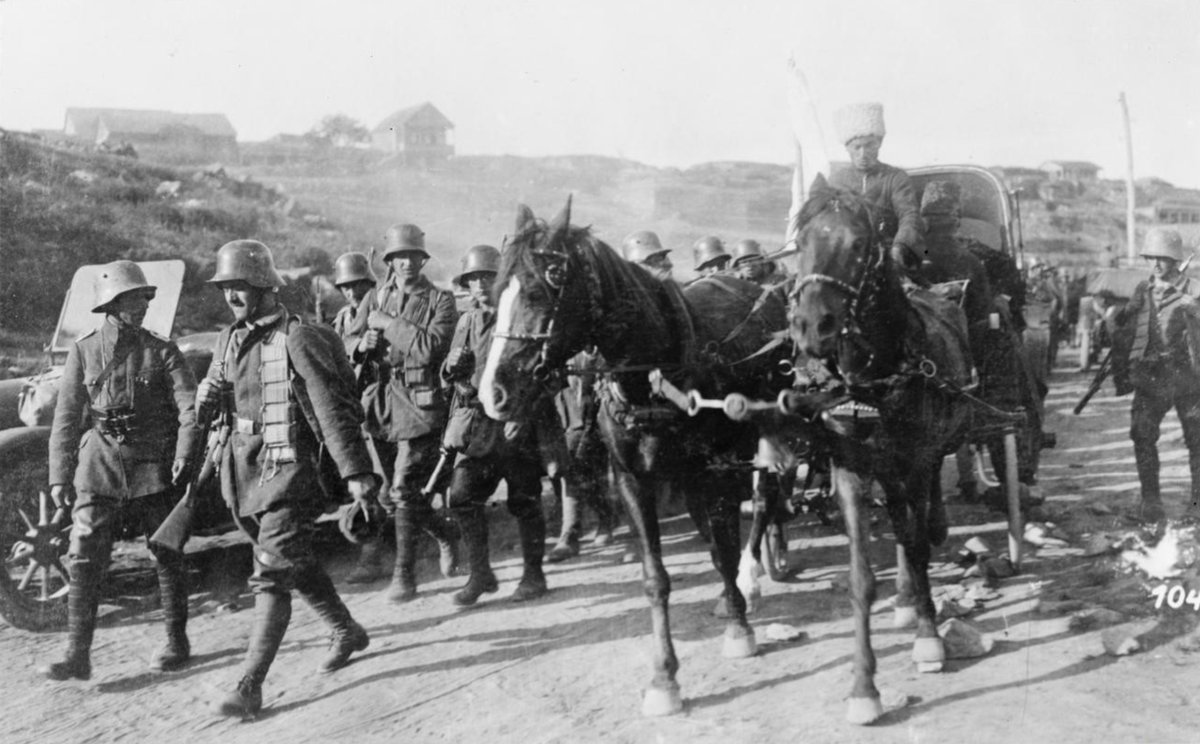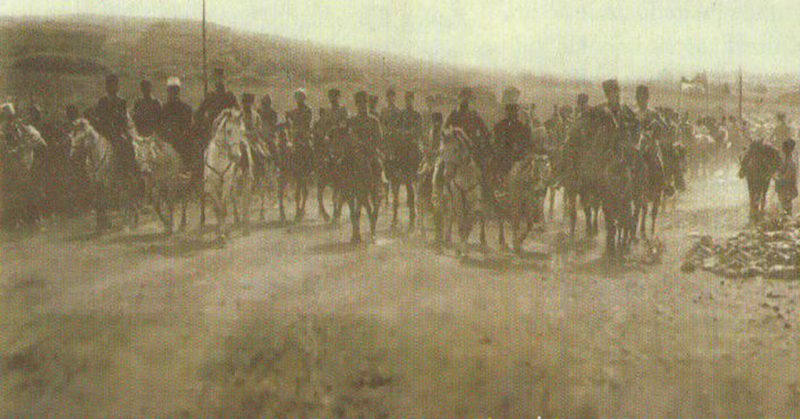Holtz looked back ten years on his role in the German
expedition to the Caucasus in June 1918, in an article in
a German newspaper. The Turkish General Staff had
the article translated into Ottoman Turkish and
published in its "Askeri Mecmuası" (Military Journal)
in November 1928.
German Expedition 1918 click here for background.
Von der Holtz led the 'German Caucasus Expedition'
and his commander in the campaign was General Kress
von Kressenstein, who had served in the Ottoman Army
on the Palestine Front in 1916-17.
Herewith TNT presents the transcribed-translated version
of the Ottoman Turkish translation of von der Holtz's
article.//
Turks in Caucasus 1918 click here for the final of an 11-
part TNT series about the Ottoman Islamic Army of the
Caucasus, there at the same time as the Germans.

German soldiers, left, in the Caucasus in 1918.
--------------------------------------------------------------------------------
From the July 1928 article in "Der Deutsch", issue number 28:
Author: Retired Colonel Friedrich von der Holtz
Turkish translator: Captain Rahmi
Lessons from War History
Why Did We Go to Transcaucasia in 1918?
Ten years have passed since we undertook one of Germany's most
controversial operations of the Great War. This was the expedition to
Transcaucasia, which came at great cost but with little to show for it.
General von Gleich recently wrote in an article about our Caucasus
policy that:
"The most amazing aspect is that even in June 1918 there was still a
'Pollyanna-esque' hope with regard to the Western Front, yet the war
situation for the Austrians was serious, as it was for the Turks in Iraq,
and Palestine was more or less a calamity, while the Bulgarians
were being beaten.
As for the Caucasus, even if one claims that the Turkish and German
forces operating there were insignificant, it was completely illogical
for us to pursue expeditionary plans aimed at having one ally butter
the bread of another but based ultimately on insufficient forces
available for the task at hand.
the bread of another but based ultimately on insufficient forces
available for the task at hand.
Even now, it is still difficult to discern whether this policy, which calls
to mind Alexander the Great, was the direct product of the Foreign
Ministry or whether it was the consequence of the Foreign Ministry's
weakness vis-a-vis the military policymakers. Perhaps we will never
know."
the war became a physics professor, specializing in
relativity.
When one looks at Transcaucasia, I myself conclude that, for the most
part, the German General Staff undertook operations beyond its
capabilities in the Great War and, consequently, the forces required for
decisive victory were weakened. Essentially, the proper and informed
approach for any soldier is that when opposing a number of enemy
elements one should gather all his forces and attack the strongest of the
enemy elements and ensure, to the extent possible, that not even one
of his battalions is left out of the attack. The focal point for criticisms
of the General Staff always center on this aspect.
In the Great War, the problem of leadership and administration for us
was that we were mostly entering new and unfamiliar situations, so it
became impossible to reconcile these problems with just great zeal and
force, even in simple circumstances. Many times, both tactically and
strategically, decisions that ignored and even went contrary to lessons
learned in old battles needed to be made.
This is exactly what happened in the Transcaucasia expedition! In June
1918, certainly it was not an easy decision for the German General
Staff to send a contingent of 3,000 troops of various disciplines to the
land of the Golden Fleece. The impetus for the General Staff's decision
was not the beautiful eyes of Circassian girls nor was it plans for
fantasy victories. On the contrary, the motivation came from the most
basic and practical perspectives, which would turn the basis for
wartime leadership and administration on its head.
fantasy victories. On the contrary, the motivation came from the most
basic and practical perspectives, which would turn the basis for
wartime leadership and administration on its head.

The Ottoman Islamic Army of the Caucasus in 1918.
//END of PART I//

Hiç yorum yok:
Yorum Gönder